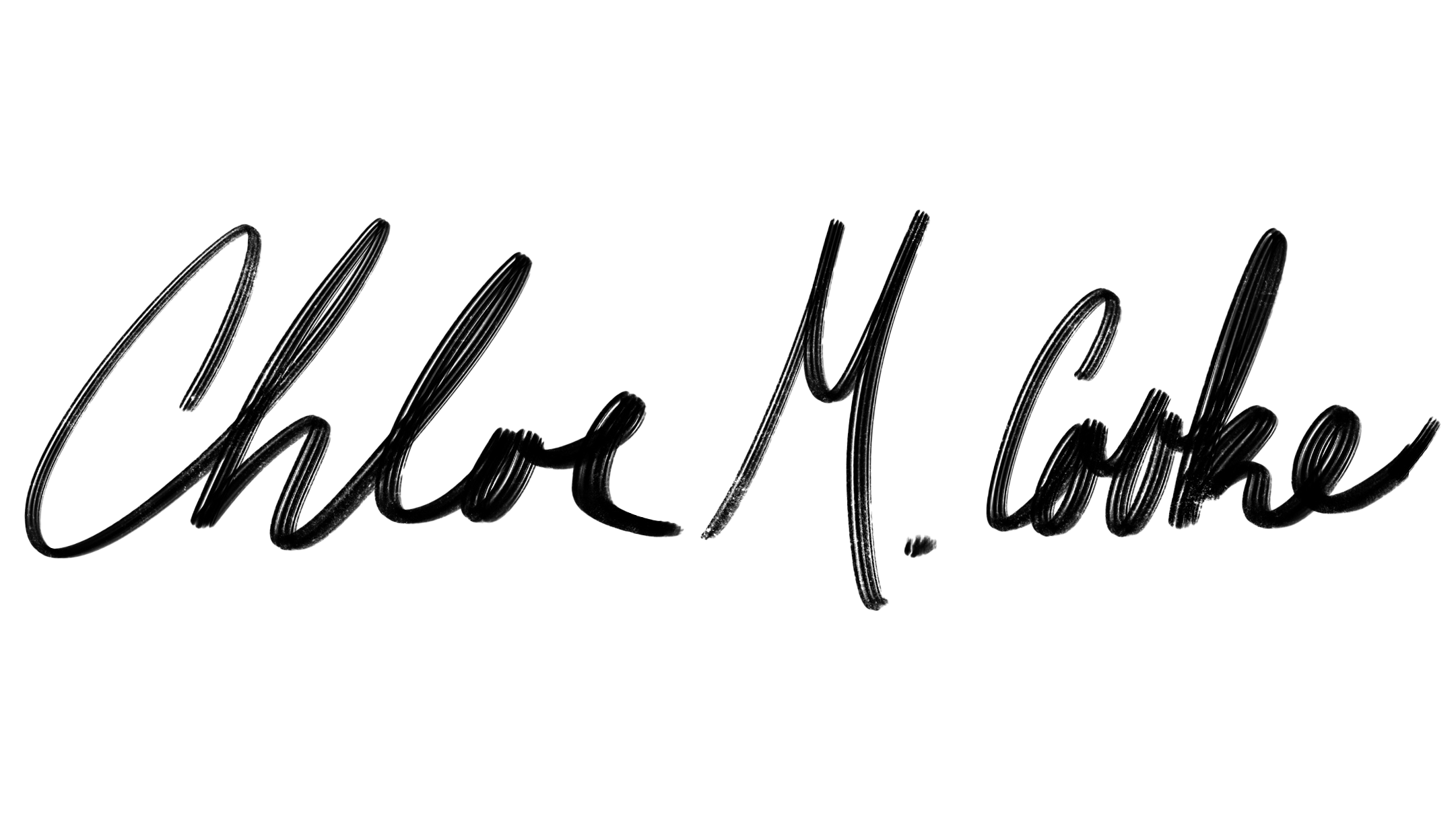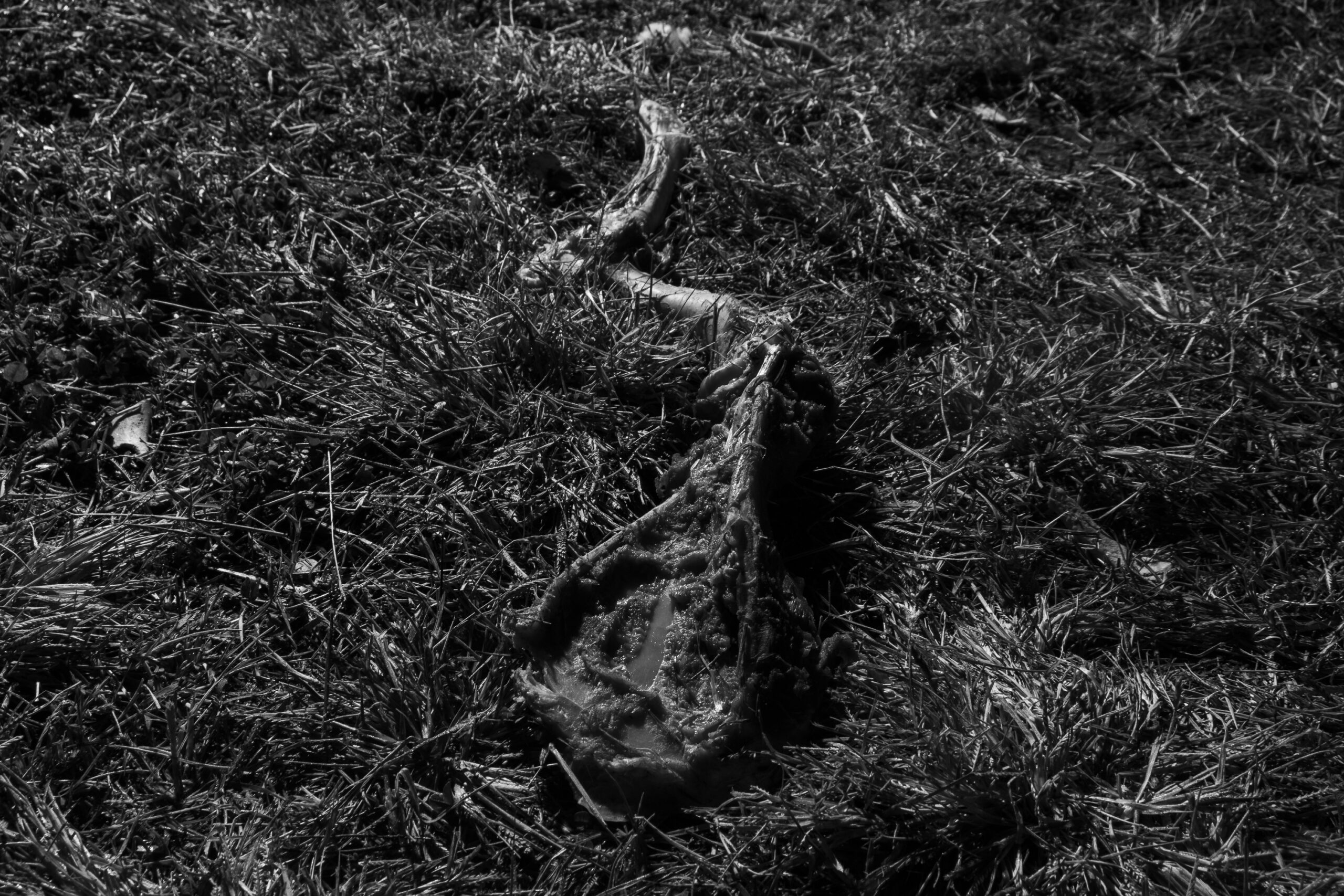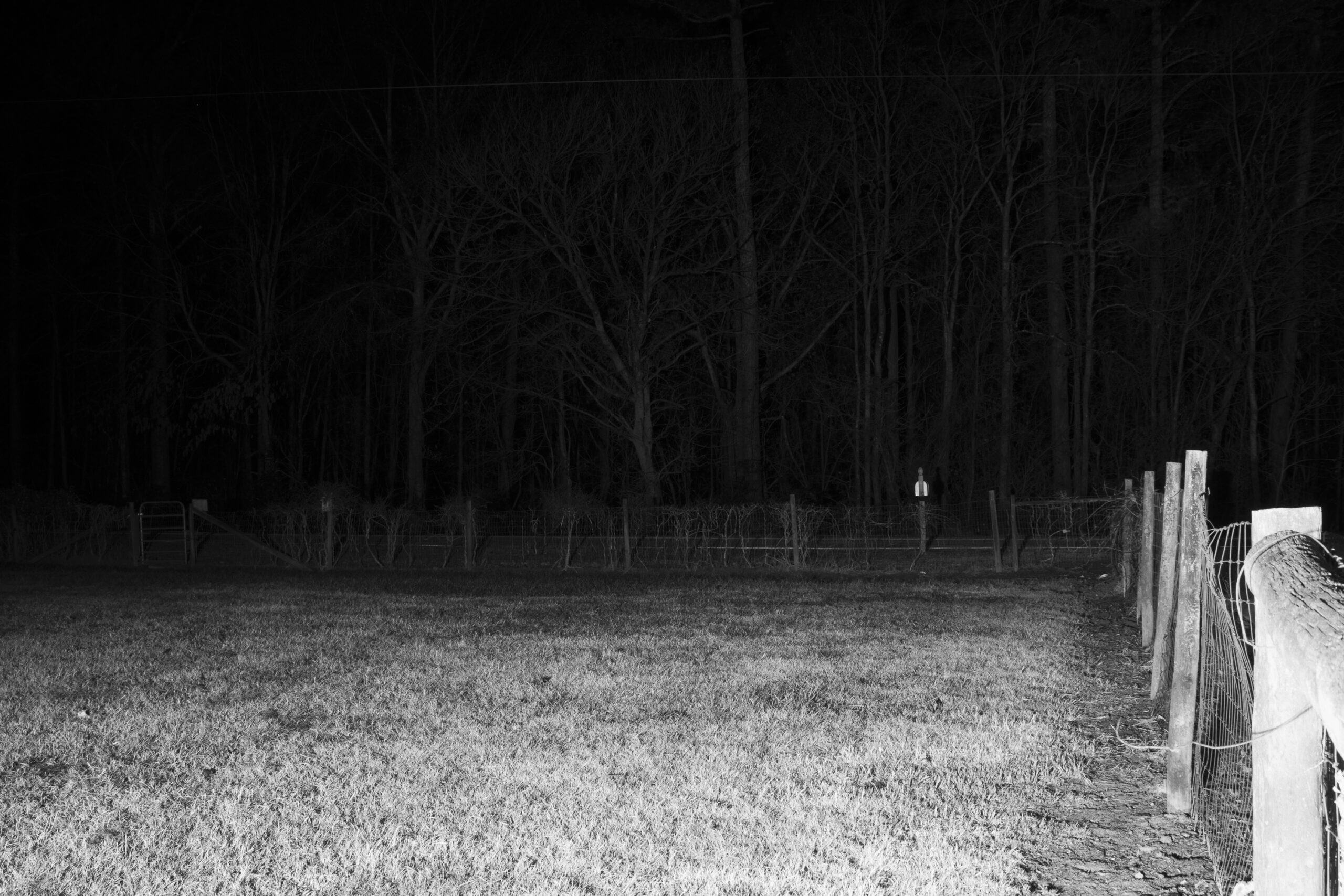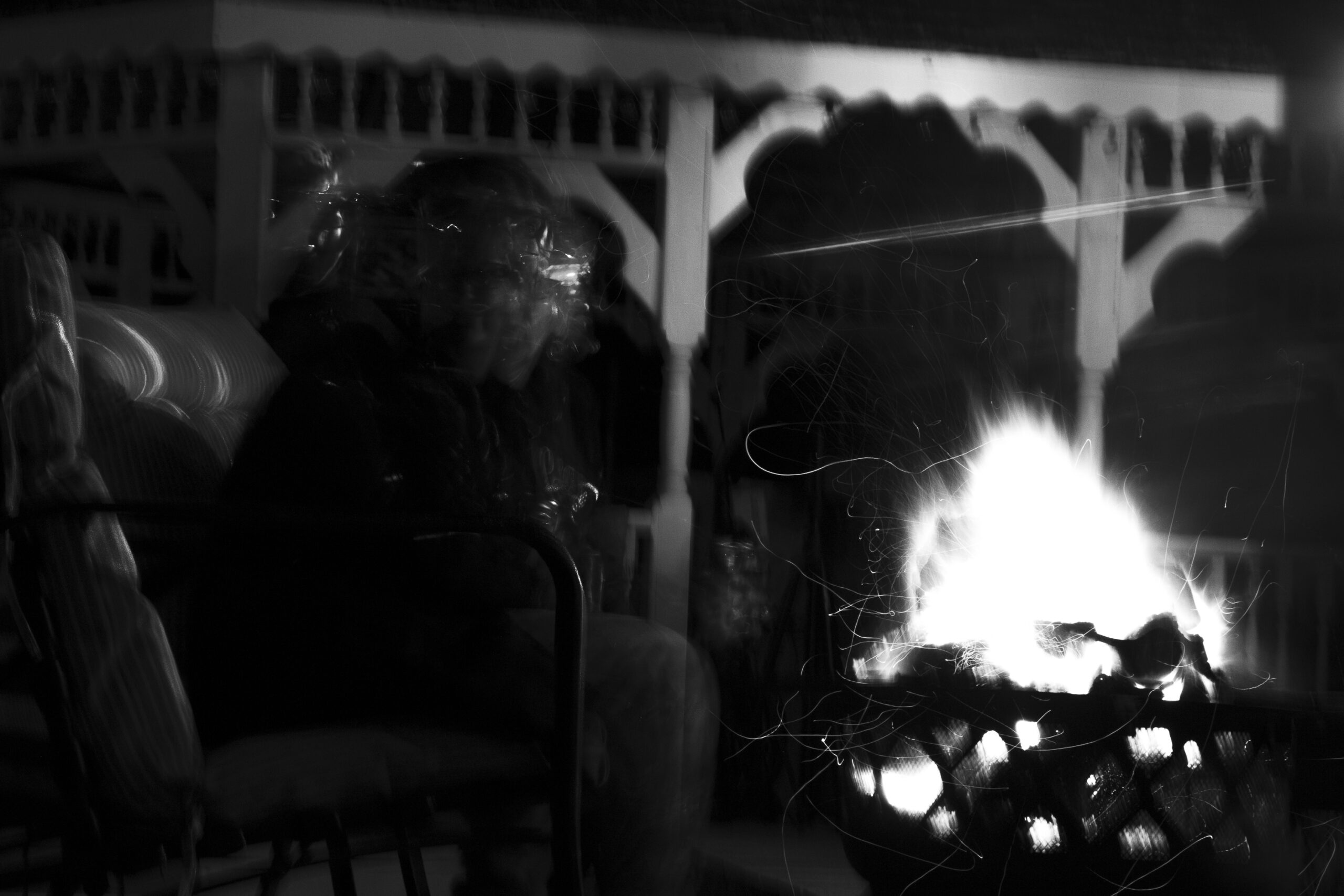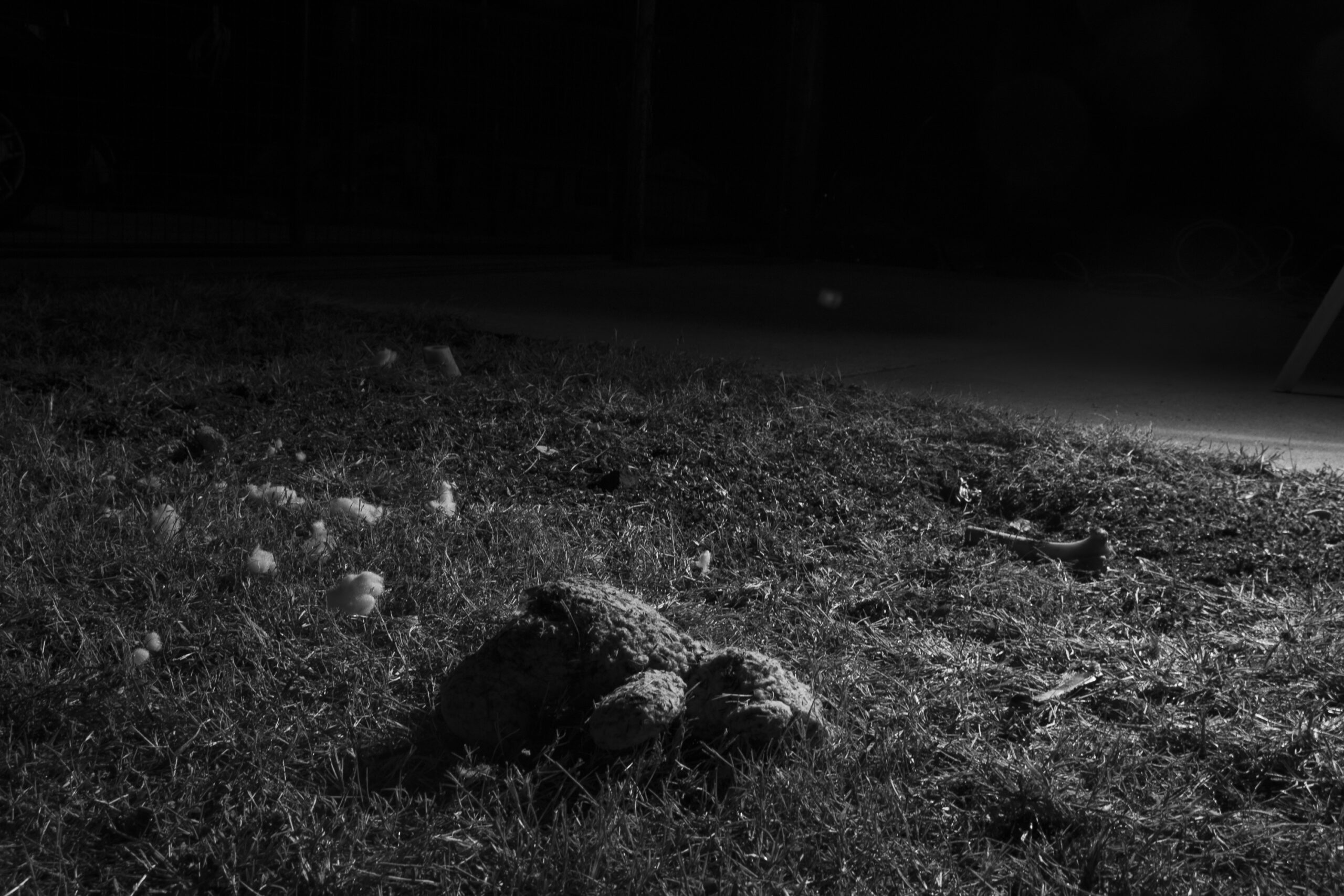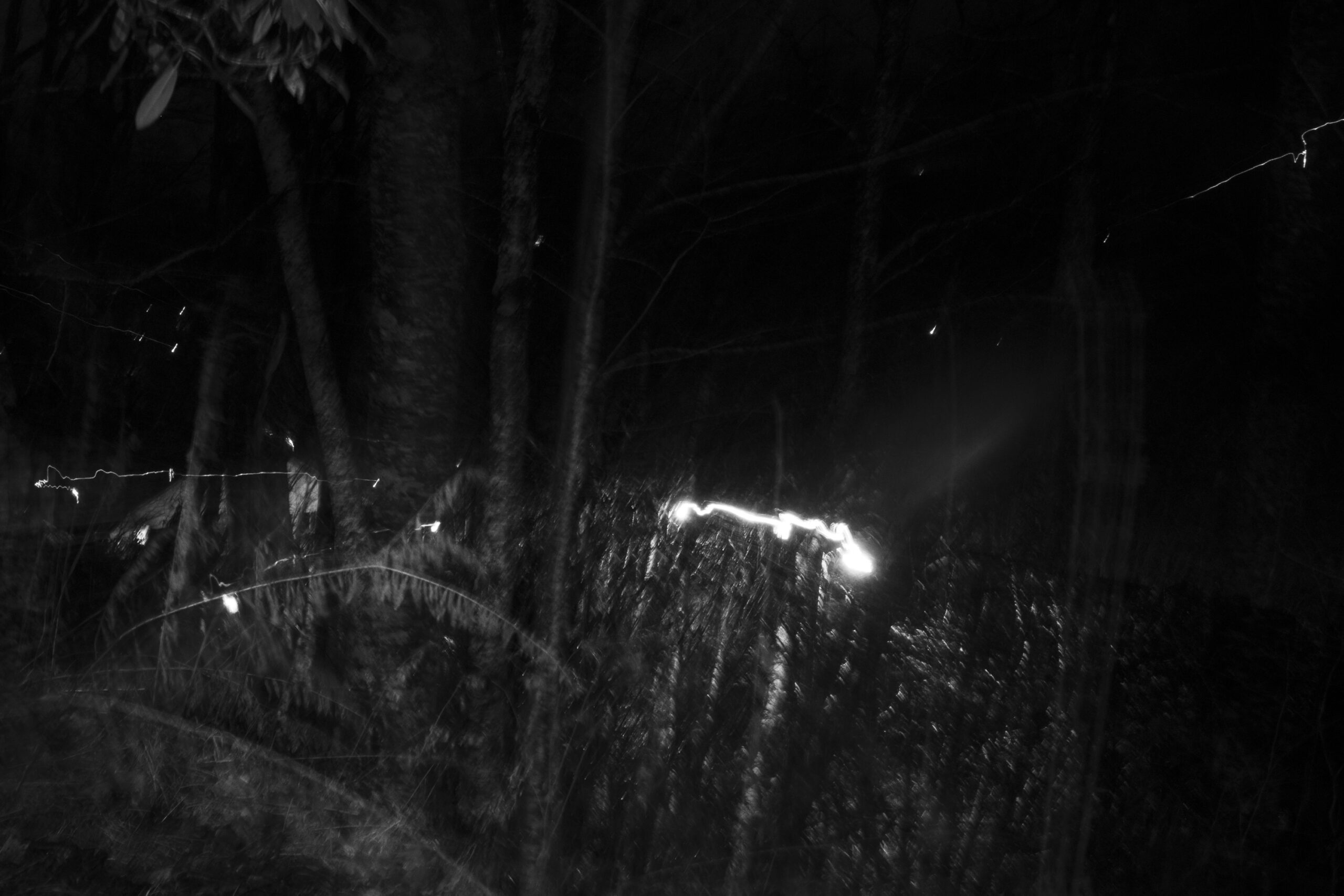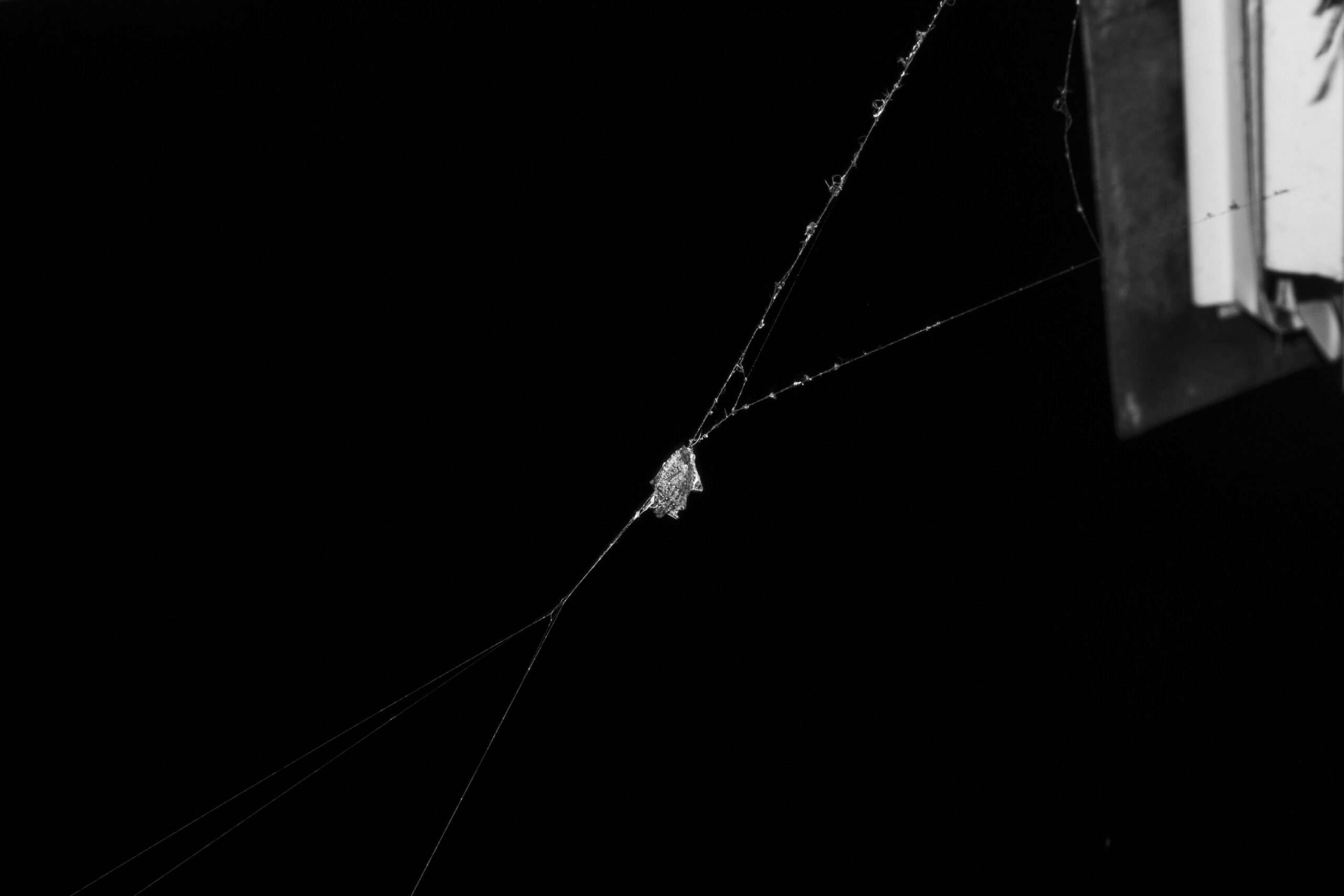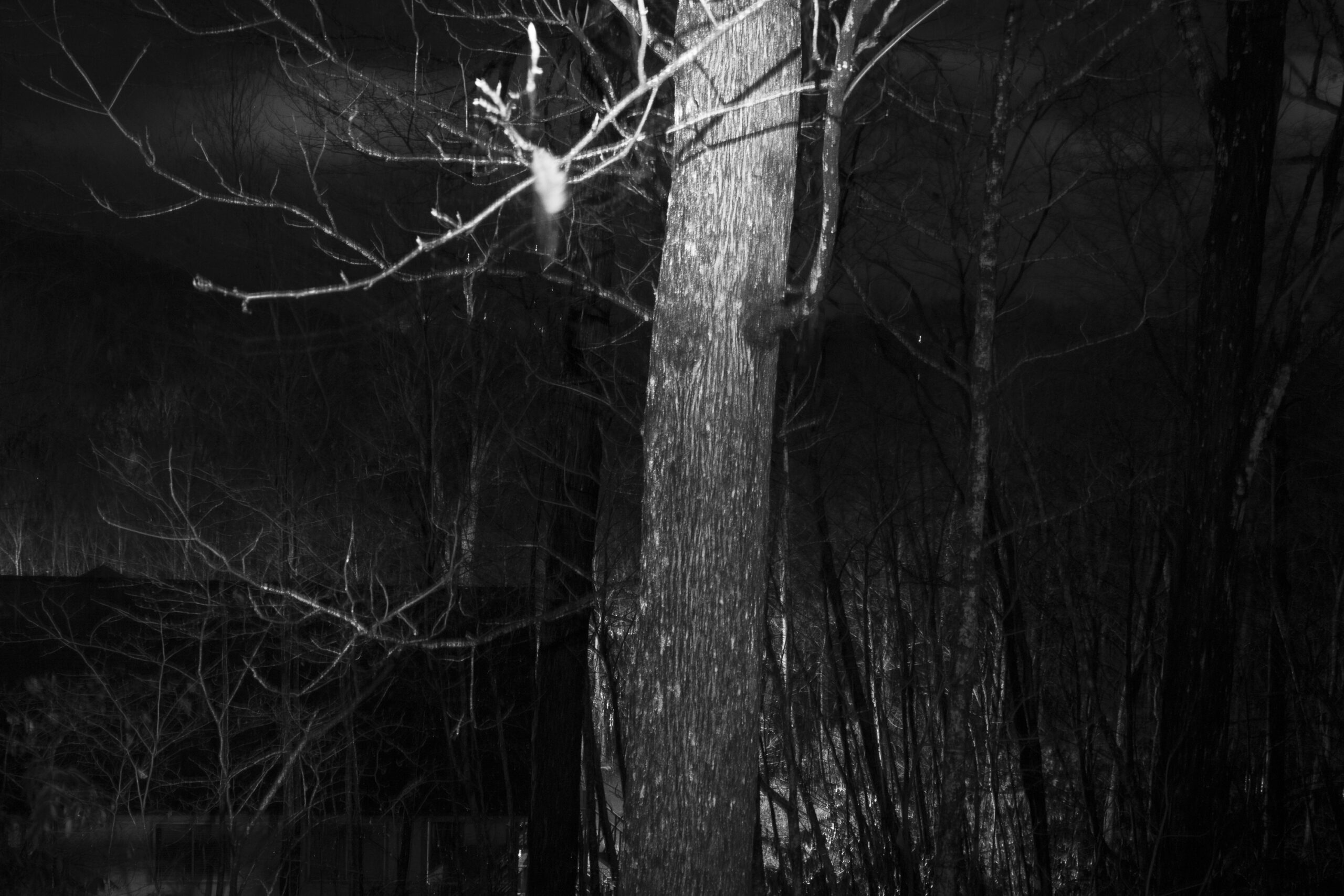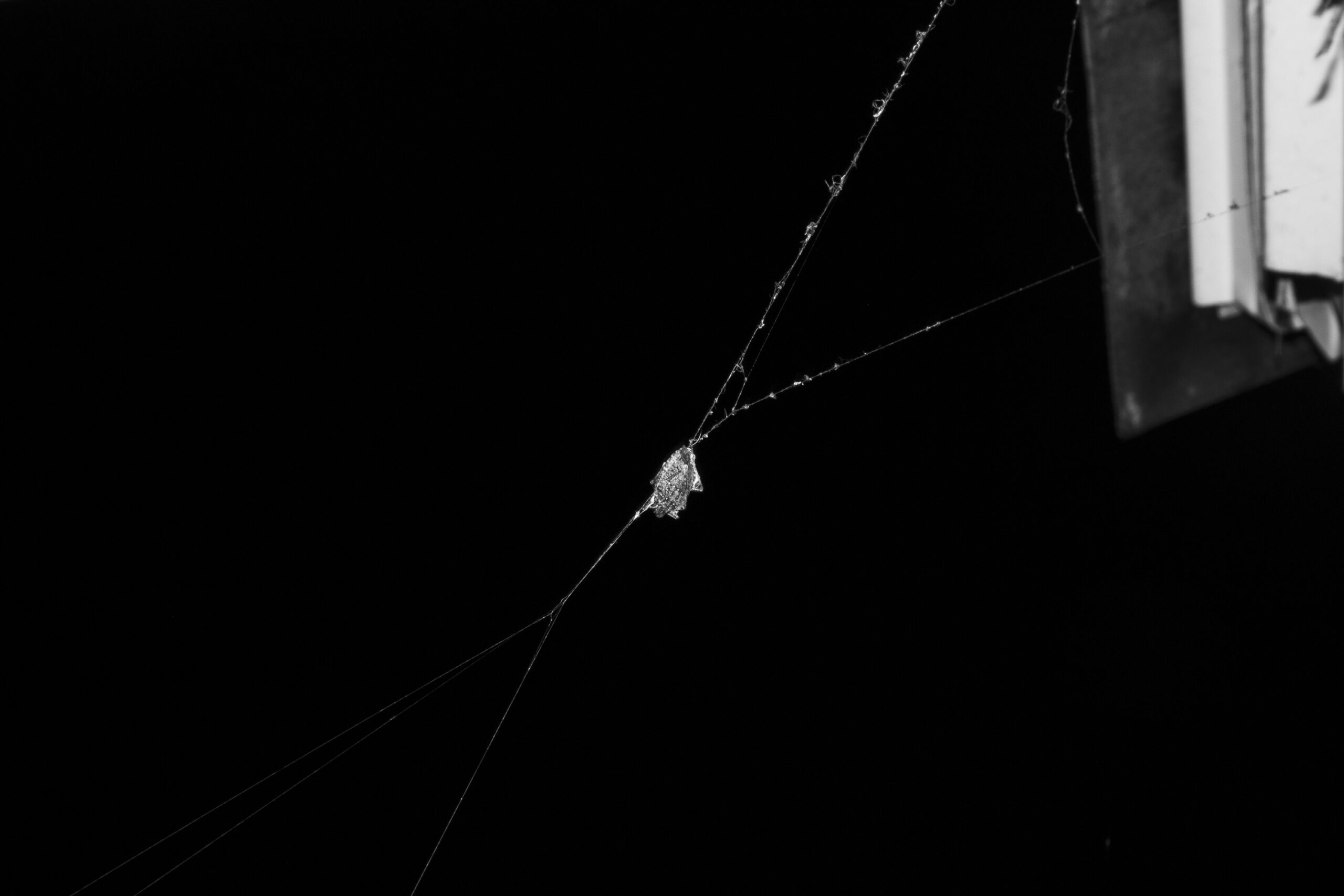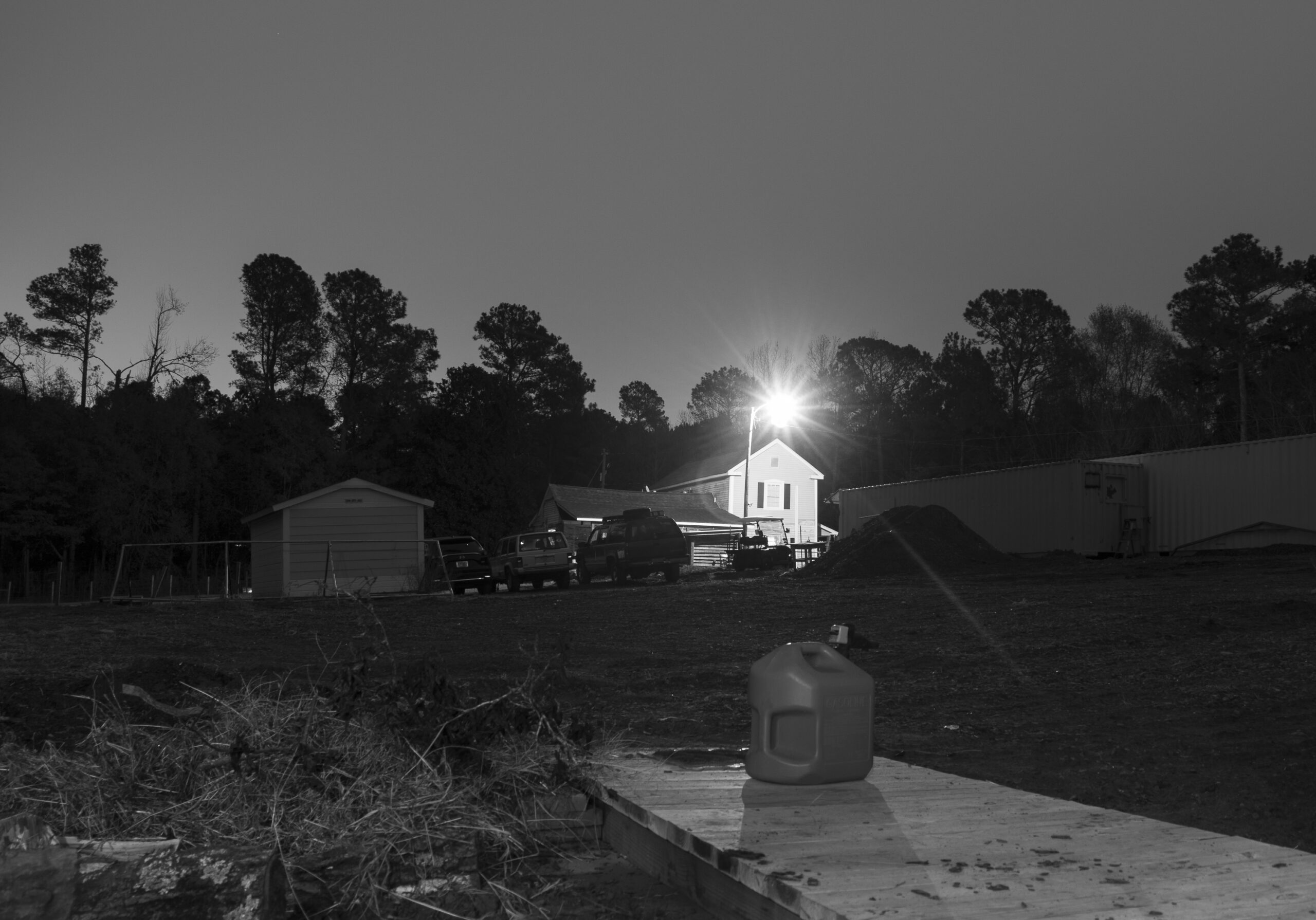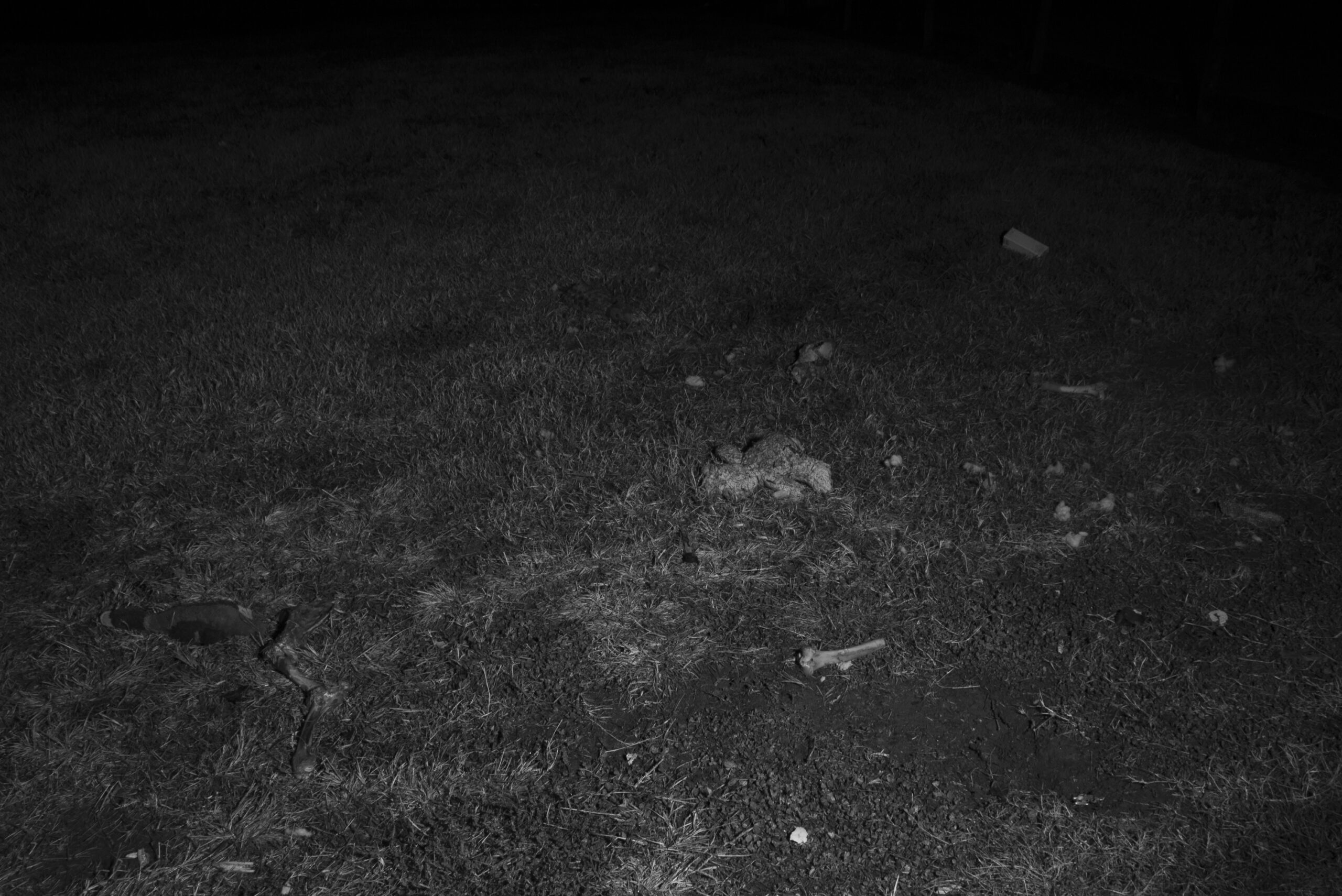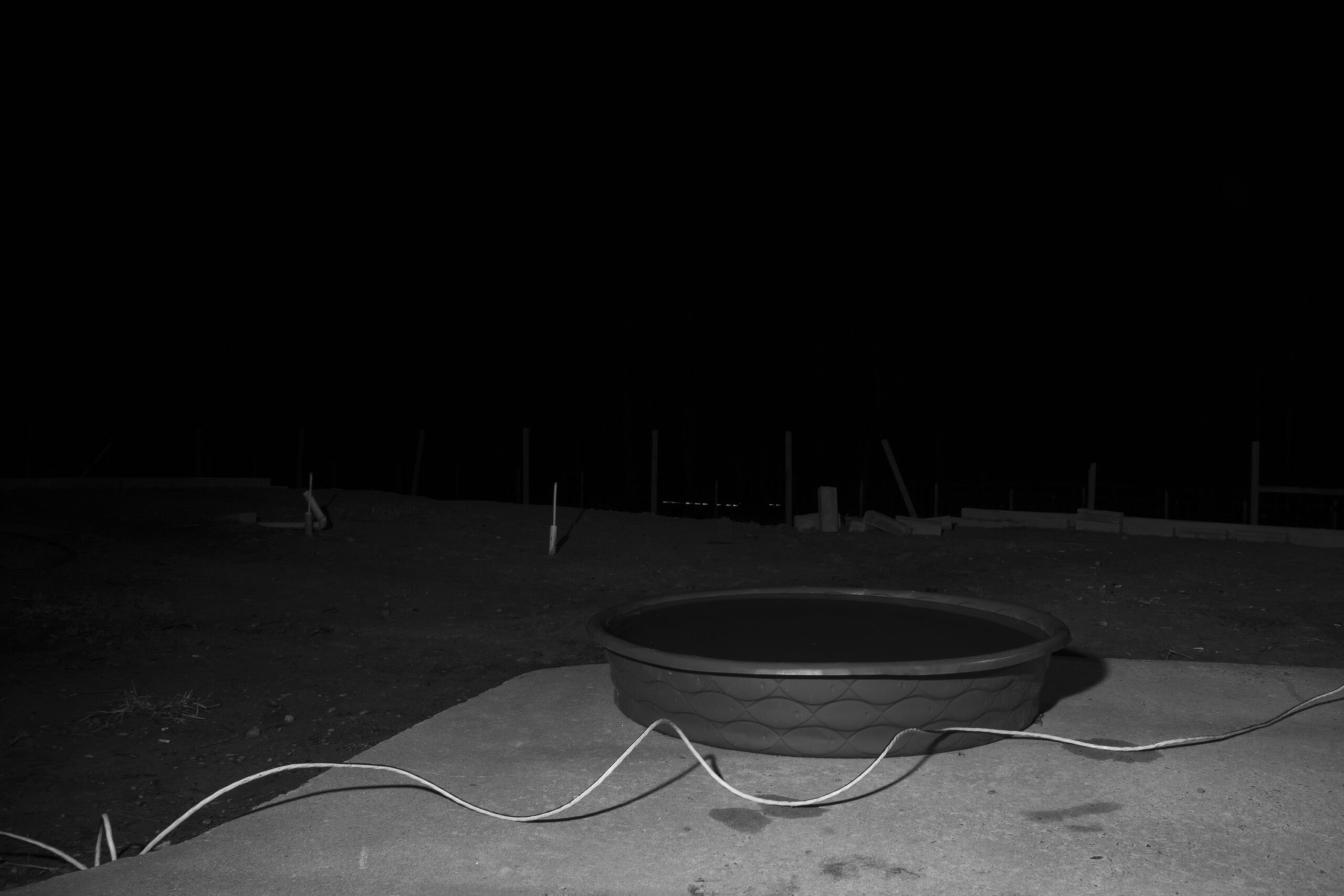Fear of the Dark
This series captivates what it was like for me as a child when I lived in the same area as my family. They live out in the countryside in the middle of a wooded area. As a child my biggest fear was the dark. When I visit it is as though his house is the only known within acres of unknowns. I drive through unknowns to find the known, his land. It was a small southern town with little public amenities. Our neighborhoods did not have street lights and many of our friends did not lock their doors at night. People felt safe in the small town but something about the dark unknown that followed me kept me inside where there was always constant light. My parents always nagged me about running up the electric bill. As I grew up, it is still something that makes me uneasy. Walking into the unknown felt like walking into an abyss where anything can make itself known if it chooses. I was completely out of control of what I could stumble upon. The darkness made me put my guard up because I lost my sense of place and safety. As an adult I’m still in a constant battle with this fear, and wanted to face it head on by visiting one of my childhood homes to take these images. When I was younger I refused to wander outdoors at night because of how deep my fear affected me, and this process was a way to overcome these deep seeded emotions that I have linked to the land of my childhood home. These images are all scenes I found whilst walking along my family’s property at night; I walked as a trial to see if my fear was worthy of existing.
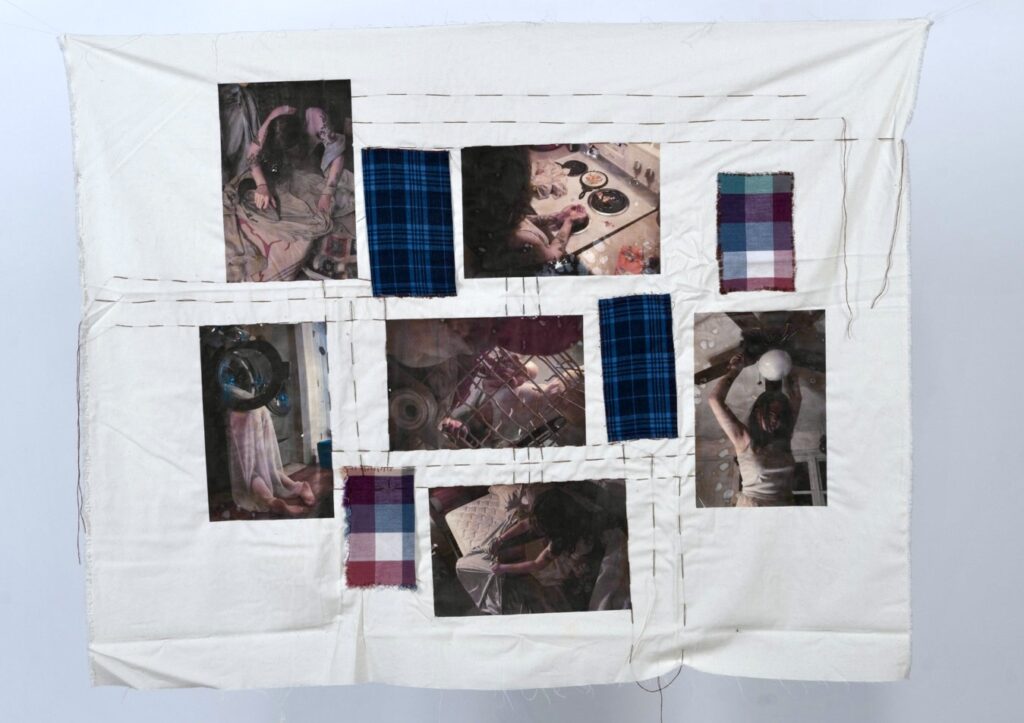

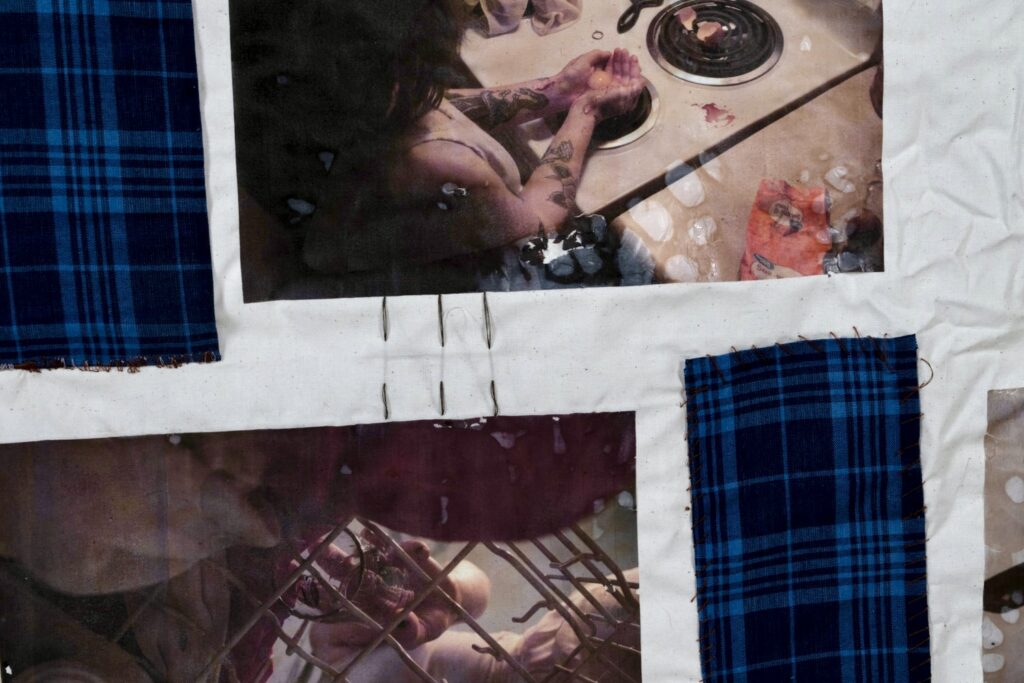
Domesticated Women of the South Quilted
The images are from my series Domesticated Women of the South. These images are printed onto canvas with surrounding fabrics, similar to a quilt. The quilt references southern and Appalachian cultural stereotypes/expectations of women. There is so much beauty within Appalachian culture but we have to recognize the bad to appreciate the good.
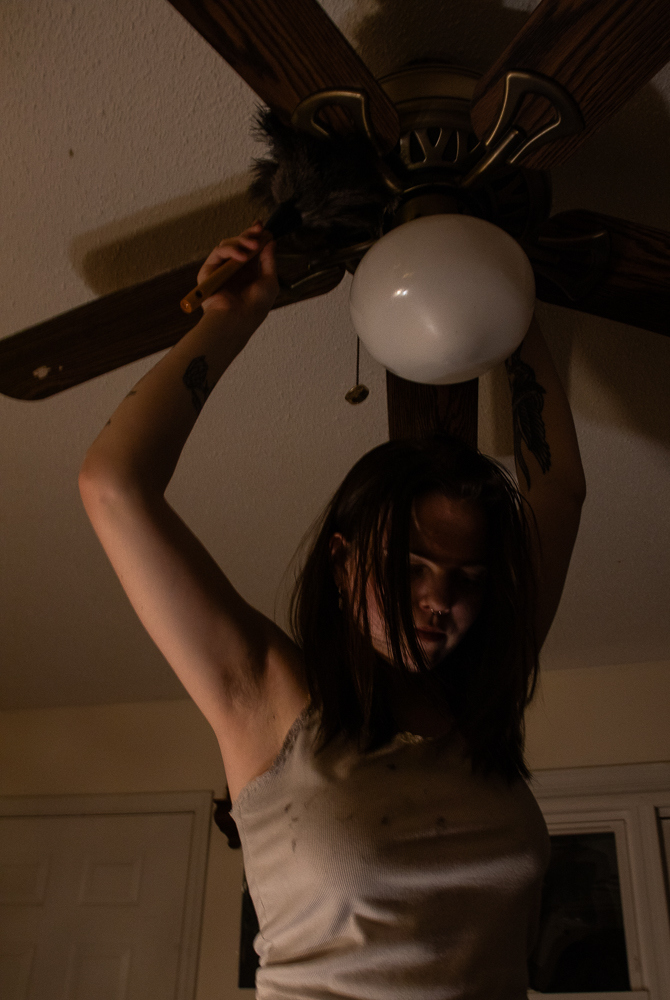
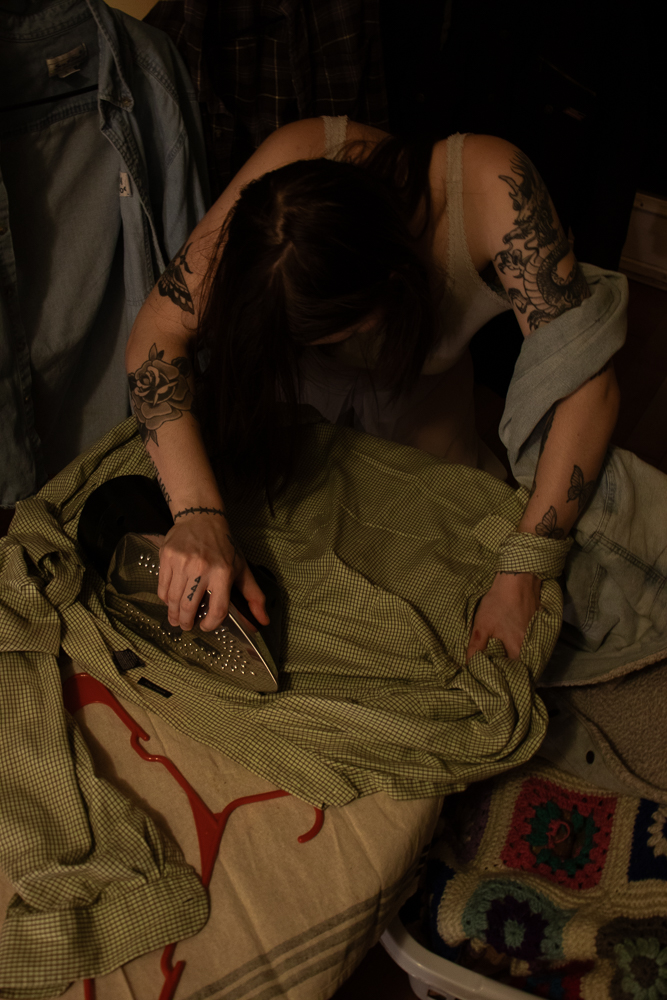
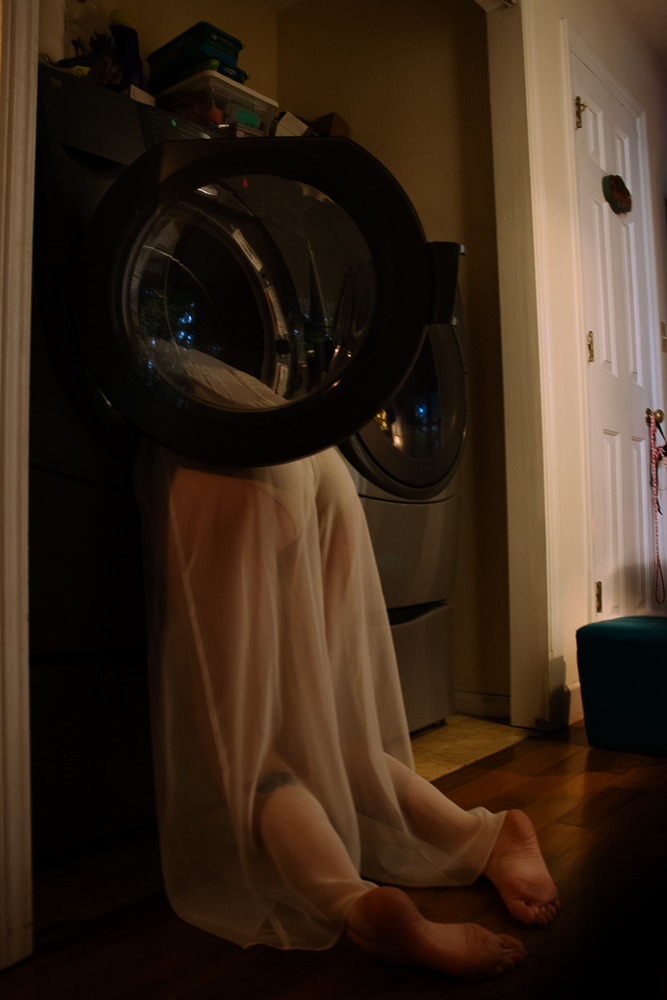
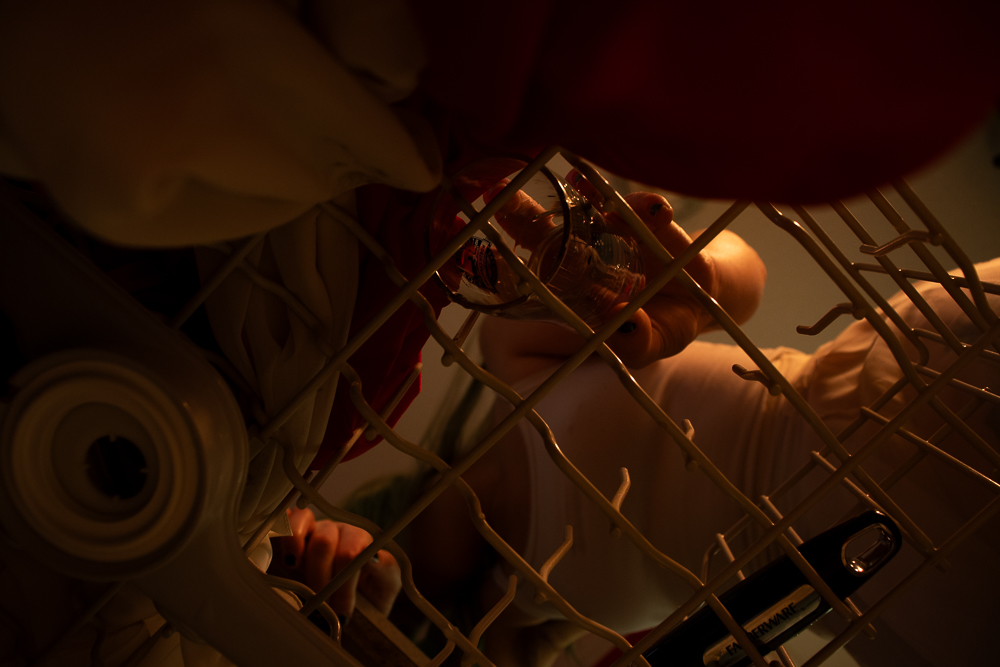
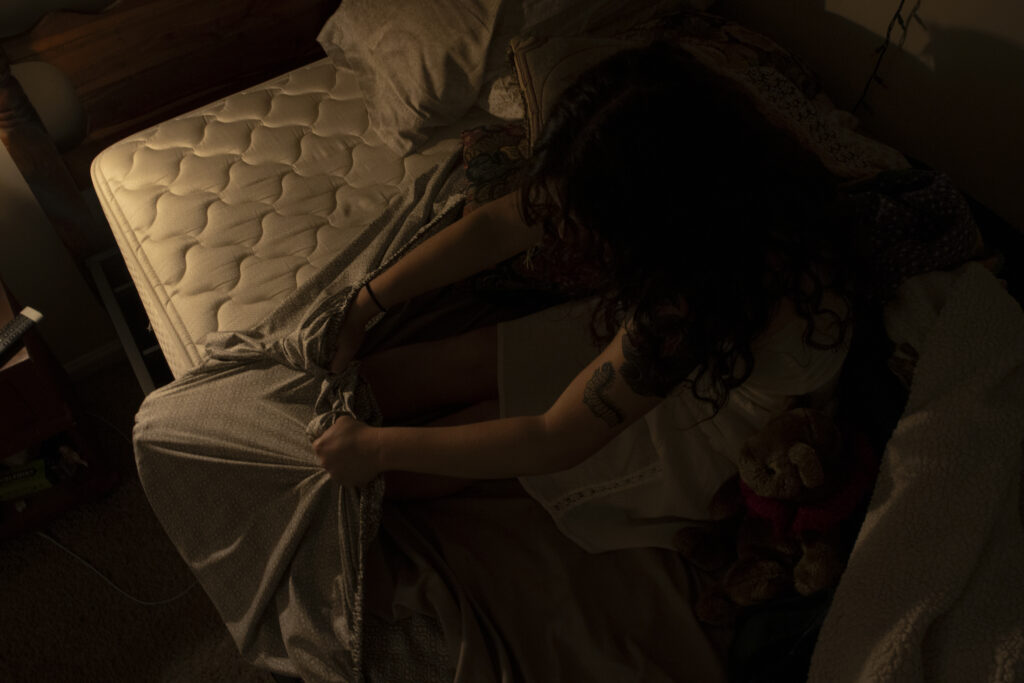
Domesticated Women of the South
The women’s suffrage movement first began in America in 1848. Since then we can say things have gotten better. As a young woman in our current world, I know things are better but there are still underlying gender-based discriminations in this world. There is the pink tax, gender pay gap, and the lack of national statutory paid parental leave. These are just a few of the financial gender-based discrimination in America. The rest of the world still looks a lot different.
This feels like a fight I have to pick up to honor the women of the past, women in my life, and for myself. It has led me to a place of trying to reject feminine stereotypes in my daily life due to them being the shape I was supposed to grow into. The responsibility of domestic chores is usually the first stereotype we think of concerning women living in the dated ideals of the American Dream. This harmful dream has left a lasting impression on me today. However, can we rebel against these stereotypes without compromising our quality of life because, bottom line, dishes need to be cleaned, food needs to be cooked, and laundry needs to be washed? So what does it mean when we have to live through the harmful ideals of tasks that improve our quality of life? Does acknowledging, reacting, or letting these thoughts cross our minds give power to these toxic expectations? A modern woman’s life is subjugated, gritty, and haunted with stains of the past.
